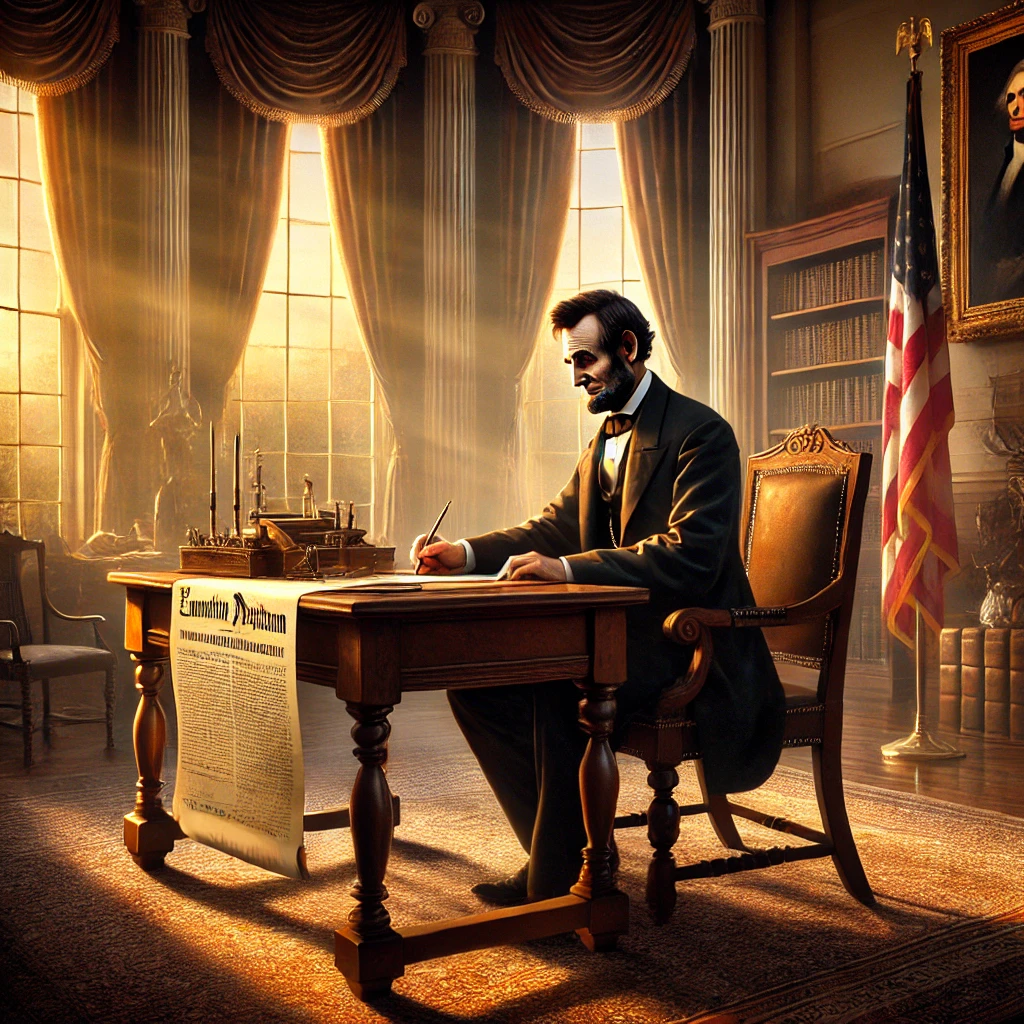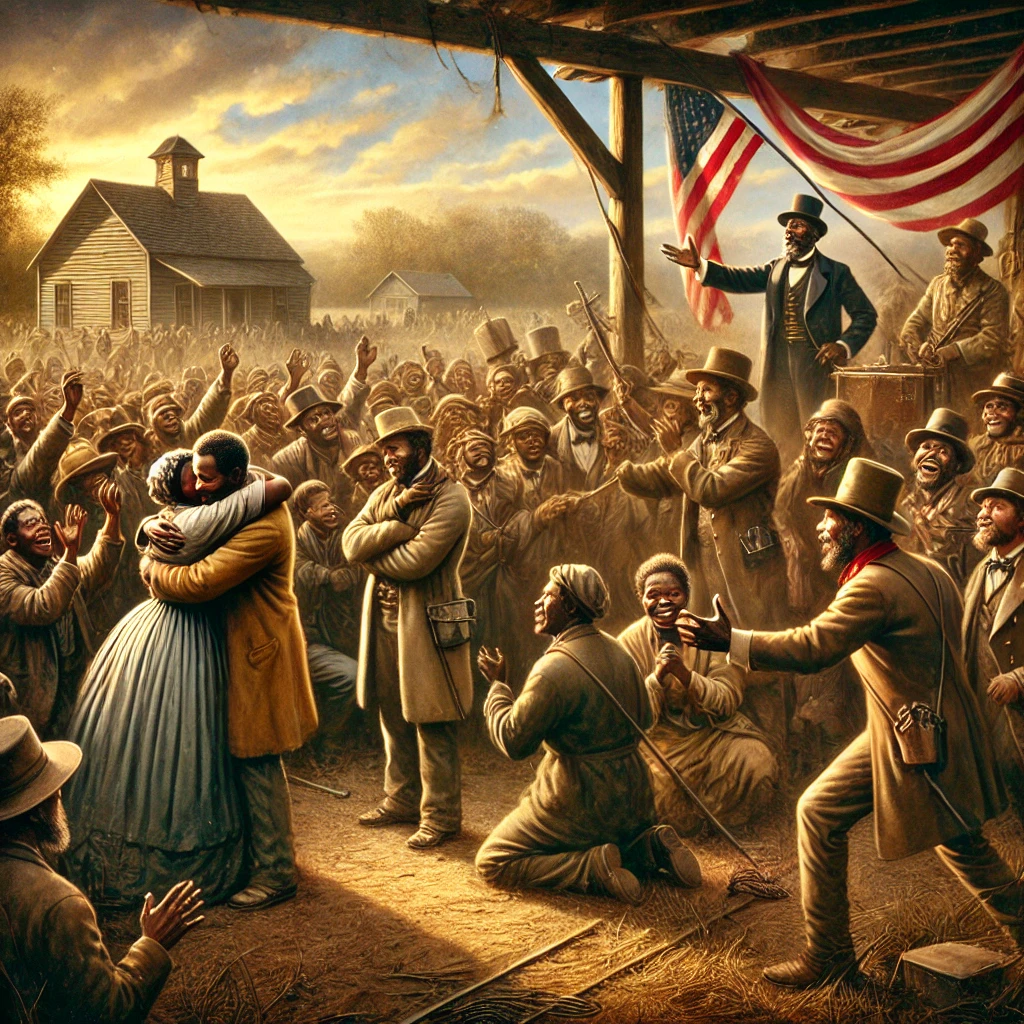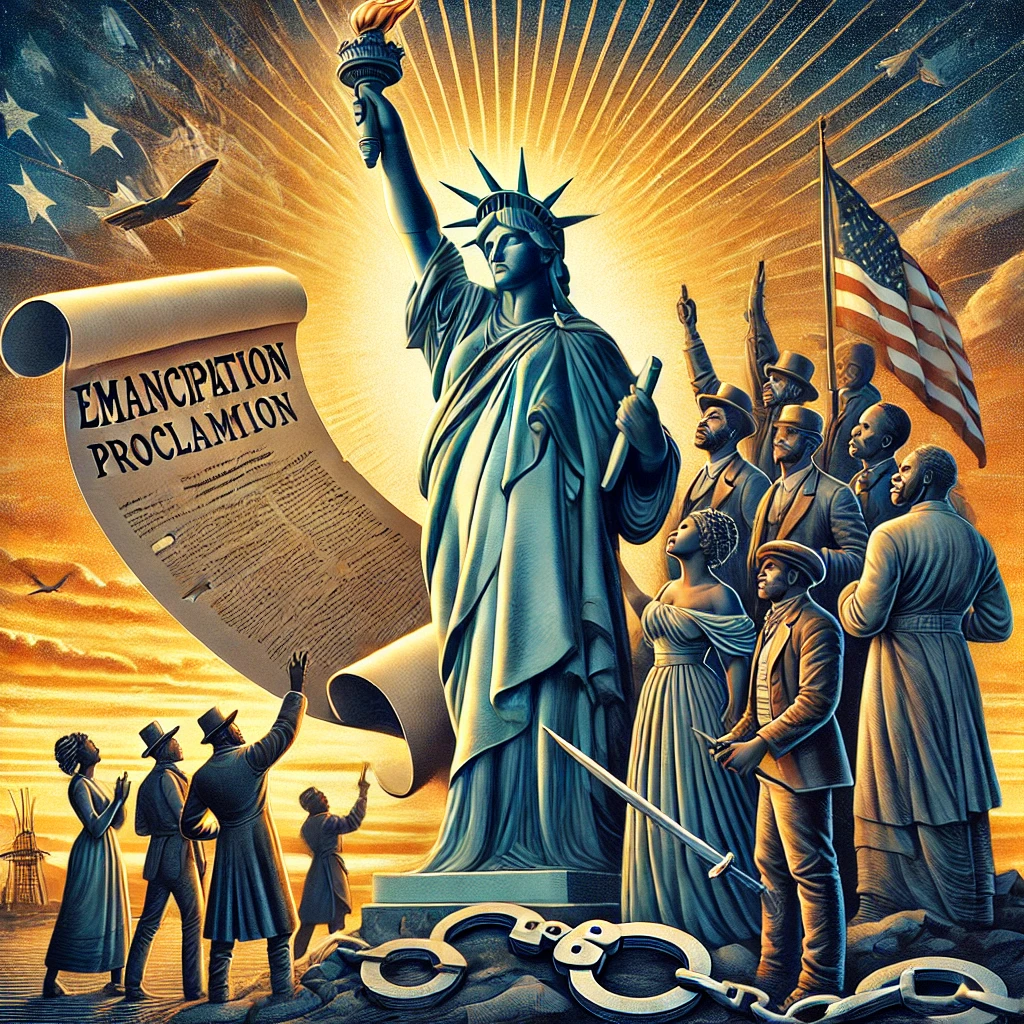On January 1st, 1863, President Abraham Lincoln signed the Emancipation Proclamation, one of the most significant executive orders in American history. This momentous action declared that all slaves in Confederate-held territories were to be set free, marking a pivotal step toward the abolition of slavery in the United States. The proclamation not only altered the course of the Civil War but also reshaped the nation’s social and moral fabric, making it one of the defining moments of American history.

The Context of the Civil War
The Emancipation Proclamation was signed during the American Civil War, a conflict between the Northern states (Union) and the Southern states (Confederacy) over issues such as slavery, states’ rights, and regional power. The war had been raging for nearly two years, and by the time Lincoln issued the proclamation, the Union had suffered significant defeats and was struggling to maintain control over the South.
Slavery, a cornerstone of the Southern economy and way of life, was one of the primary causes of the Civil War. While the Union’s primary goal was initially to preserve the country, President Lincoln increasingly recognized that ending slavery was essential to restoring the Union and achieving a moral victory. However, Lincoln faced political opposition from both pro-slavery factions and those who feared that abolition could push the border states to join the Confederacy. The timing of the Emancipation Proclamation was thus a carefully calculated decision aimed at balancing military necessity and moral leadership.

The Emancipation Proclamation’s Impact
The signing of the Emancipation Proclamation on January 1st, 1863, had profound implications for both the Civil War and the institution of slavery. The proclamation declared that all slaves in Confederate-held territories “shall be then, thenceforward, and forever free.” This effectively made the abolition of slavery a central goal of the Union war effort, ensuring that the war would be fought not only to preserve the Union but also to end the institution of slavery.
While the proclamation did not immediately free all slaves—since it applied only to areas under Confederate control—it was a critical step in weakening the Confederacy’s economy and morale. The proclamation also allowed for the recruitment of African American soldiers into the Union Army, further strengthening the Northern war effort. By the end of the Civil War, more than 180,000 African American soldiers had served in the Union Army, playing a crucial role in securing the Union’s victory.
The Legacy of the Emancipation Proclamation
The Emancipation Proclamation marked a turning point in the history of the United States, both during the Civil War and in the years that followed. Although it did not immediately end slavery in the entire country, it laid the groundwork for the passage of the 13th Amendment to the U.S. Constitution in 1865, which abolished slavery throughout the nation. The Proclamation shifted the moral and political landscape of the United States, making the abolition of slavery a central aim of the Union’s war effort and permanently changing the course of American history.

The legacy of the Emancipation Proclamation extends beyond its immediate impact. It symbolizes the United States’ commitment to freedom and equality, and it continues to inspire movements for justice and human rights around the world. Lincoln’s bold decision to issue the Proclamation, despite its political risks, demonstrated his leadership and conviction. The Emancipation Proclamation remains a testament to the power of executive action to effect change in times of national crisis.
The signing of the Emancipation Proclamation on January 1st, 1863, was a watershed moment in American history. It not only provided a moral justification for the Union’s war effort but also signaled the beginning of the end for slavery in the United States. By declaring all slaves in Confederate-held territory to be free, President Lincoln set the nation on a path toward the abolition of slavery and the recognition of African Americans’ rights. The Emancipation Proclamation reshaped the Civil War and helped define the United States’ ideals of freedom and equality, leaving a lasting legacy that endures in American society today.
